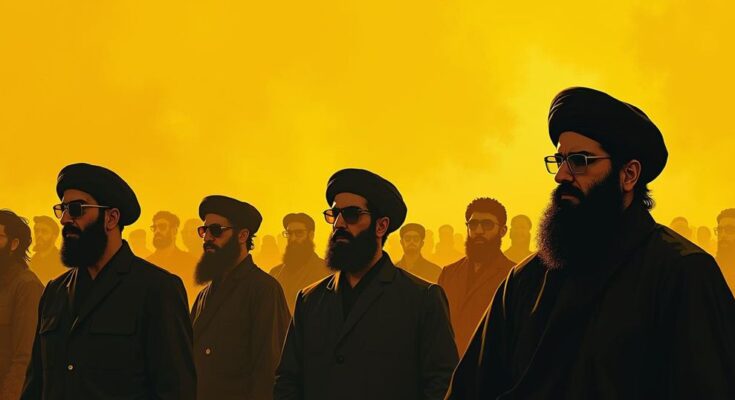Hassan Nasrallah, leading Hezbollah for over thirty years, has transformed it into a powerful paramilitary group, engaging in significant conflicts against Israel and influencing the Syrian Civil War. Charismatic and pragmatic, he has built strategic alliances, gain iconic status among supporters, and navigated complex geopolitical dynamics. His recent military actions in response to the Israel-Hamas conflict signify an escalation in regional tensions, marking his role as an increasingly pivotal figure in Middle Eastern affairs.
Hezbollah’s leader, Hassan Nasrallah, has been at the helm of the Lebanese militant organization for over thirty years, during which he has played a pivotal role in transforming Hezbollah into a formidable paramilitary entity within the Middle East. Nasrallah, who is 64 years old, has been characterized as both charismatic and astute. Under his leadership, Hezbollah has engaged in multiple confrontations with Israel and has significantly contributed to the conflict in Syria, further solidifying President Bashar Assad’s regime. He has successfully established alliances with Shiite leaders in Iran and Palestinian groups, including Hamas, and is venerated by his Lebanese Shiite supporters as well as respected across the broader Arab and Islamic communities. Nasrallah, who holds the title of sayyid—indicative of his lineage tracing back to the Prophet Muhammad—has managed to maintain a dual reputation: viewed as an extremist in the United States and much of the West, yet recognized as a pragmatic leader among the factions that preceded him following Hezbollah’s establishment amid Lebanon’s civil war in 1982. Born in 1960 into a humble Shiite family in the impoverished suburb of Sharshabouk in Beirut, he later moved to southern Lebanon, where his political career began with the Amal movement. As Hezbollah coalesced in the early 1980s, following the Iranian Revolutionary Guard’s arrival to oppose Israeli forces, Nasrallah became a foundational figure. Rising to the position of secretary-general in February 1992 after the assassination of his predecessor, he guided Hezbollah through significant moments, such as the withdrawal of Israeli troops from Lebanon in 2000, which positioned him as an iconic leader. More recently, amid the ongoing Israel-Hamas conflict, Nasrallah has escalated military operations against Israel, asserting that these actions serve as a support front for Gaza. He has reiterated his commitment to these operations until a ceasefire is implemented in Gaza. Tensions have further heightened as Israel has ramped up military maneuvers targeting Hezbollah, including the assassination of key military commanders and destruction of communication networks used by the group, leading to substantial casualties among its members. In summary, Hassan Nasrallah remains a complex figure whose influence has reshaped Hezbollah and its engagements in regional conflicts over the decades. His enduring leadership reflects both his adaptability to shifting political landscapes and his profound impact on the Middle East’s paramilitary dynamics.
Hassan Nasrallah has led Hezbollah, a Shiite militant organization in Lebanon, since 1992. He emerged as a significant political figure amid Lebanon’s civil war, overseeing Hezbollah’s evolution into a powerful military force opposed to both Israeli and Western influences in the region. Under his leadership, Hezbollah has participated in key conflicts, including the 2006 Lebanon War and the Syrian Civil War, solidifying its alliances with Iran and various Palestinian factions. His longstanding rivalry with Israel reached new heights following ongoing military escalations, particularly in response to the Israel-Hamas conflict that ignited in 2023, showcasing Nasrallah’s strategic importance in Lebanon and the broader Middle Eastern geopolitical landscape.
Hassan Nasrallah’s leadership of Hezbollah has significantly reshaped the organization, enabling it to emerge as a critical player in regional conflicts and establishing it as a counterforce to Israeli military efforts. His robust alliances and military posture have not only solidified Hezbollah’s standing among Shiite factions but have also made him a formidable adversary within the context of Middle Eastern geopolitics. Despite facing mounting military challenges, including Israeli operatives targeting his leadership, Nasrallah’s influence and strategic positioning continue to resonate powerfully in the region.
Original Source: apnews.com




